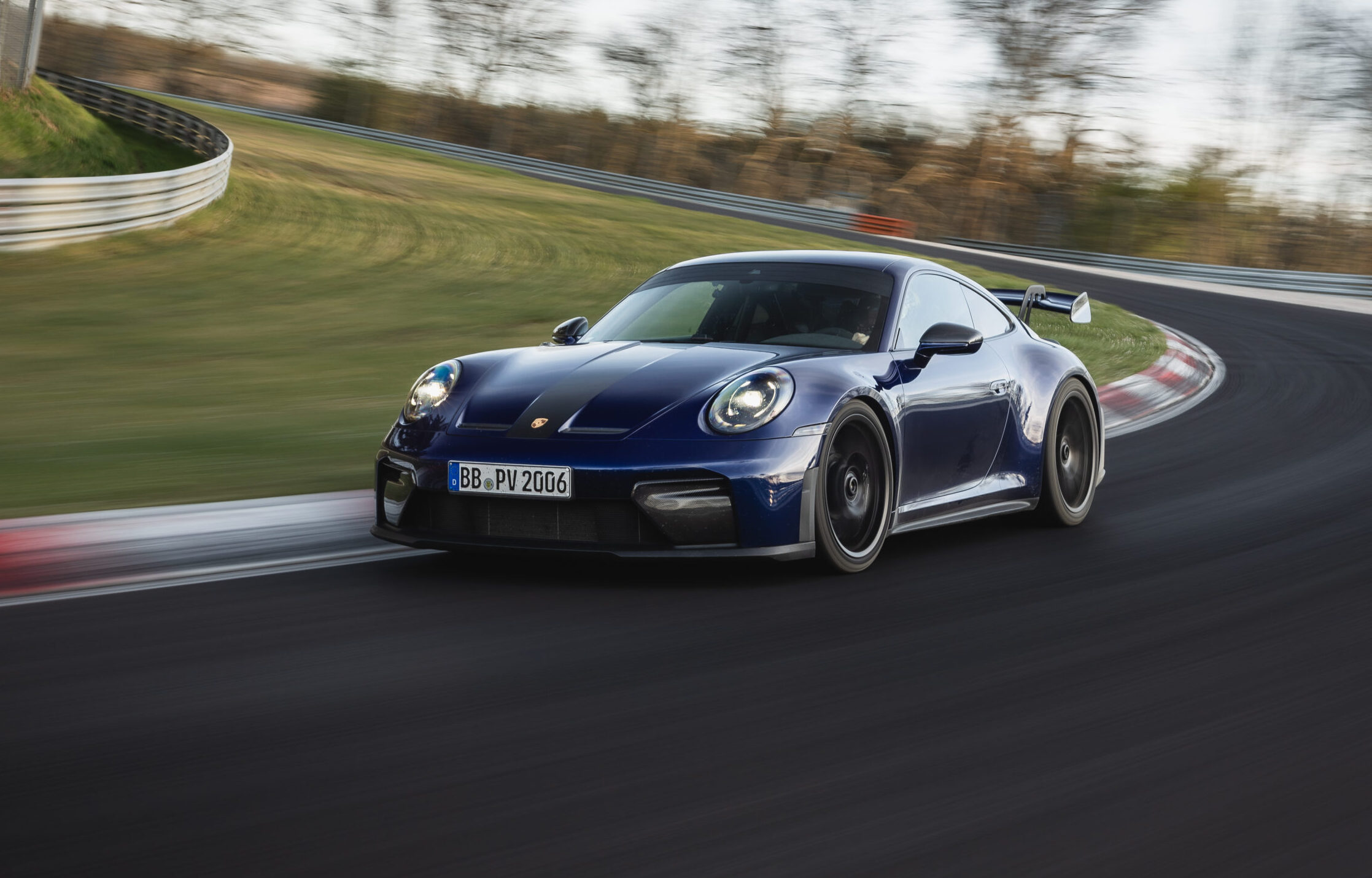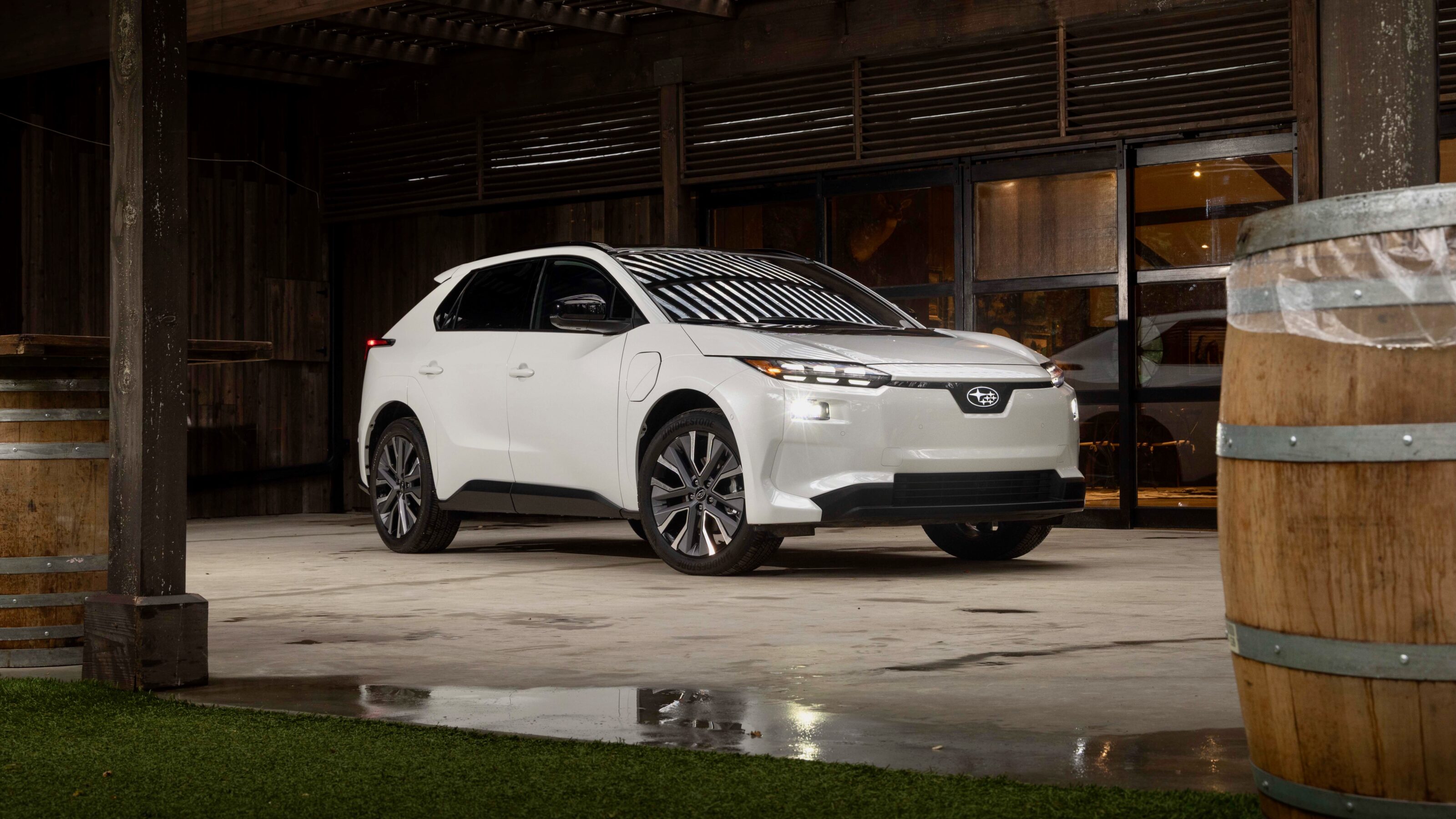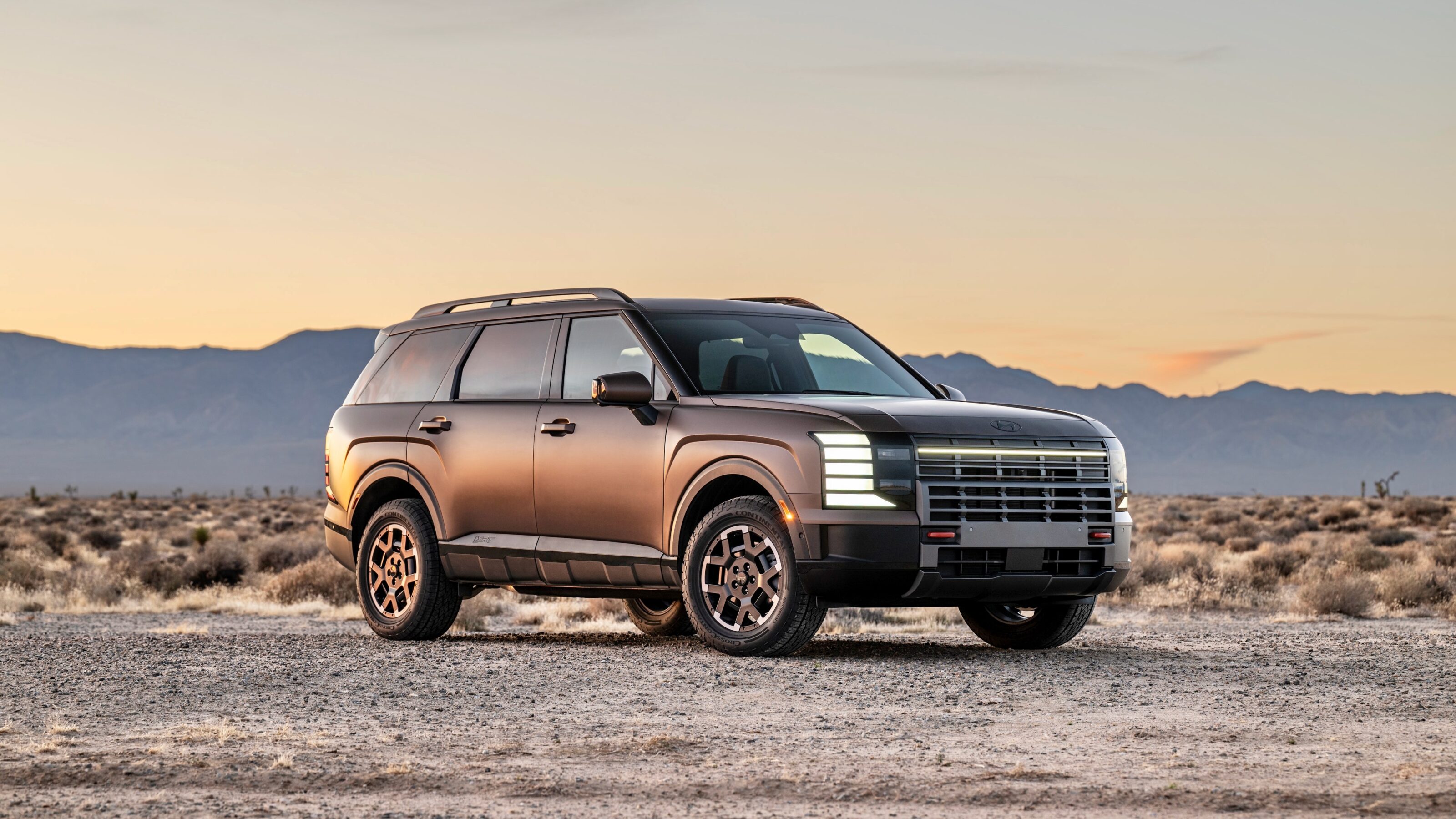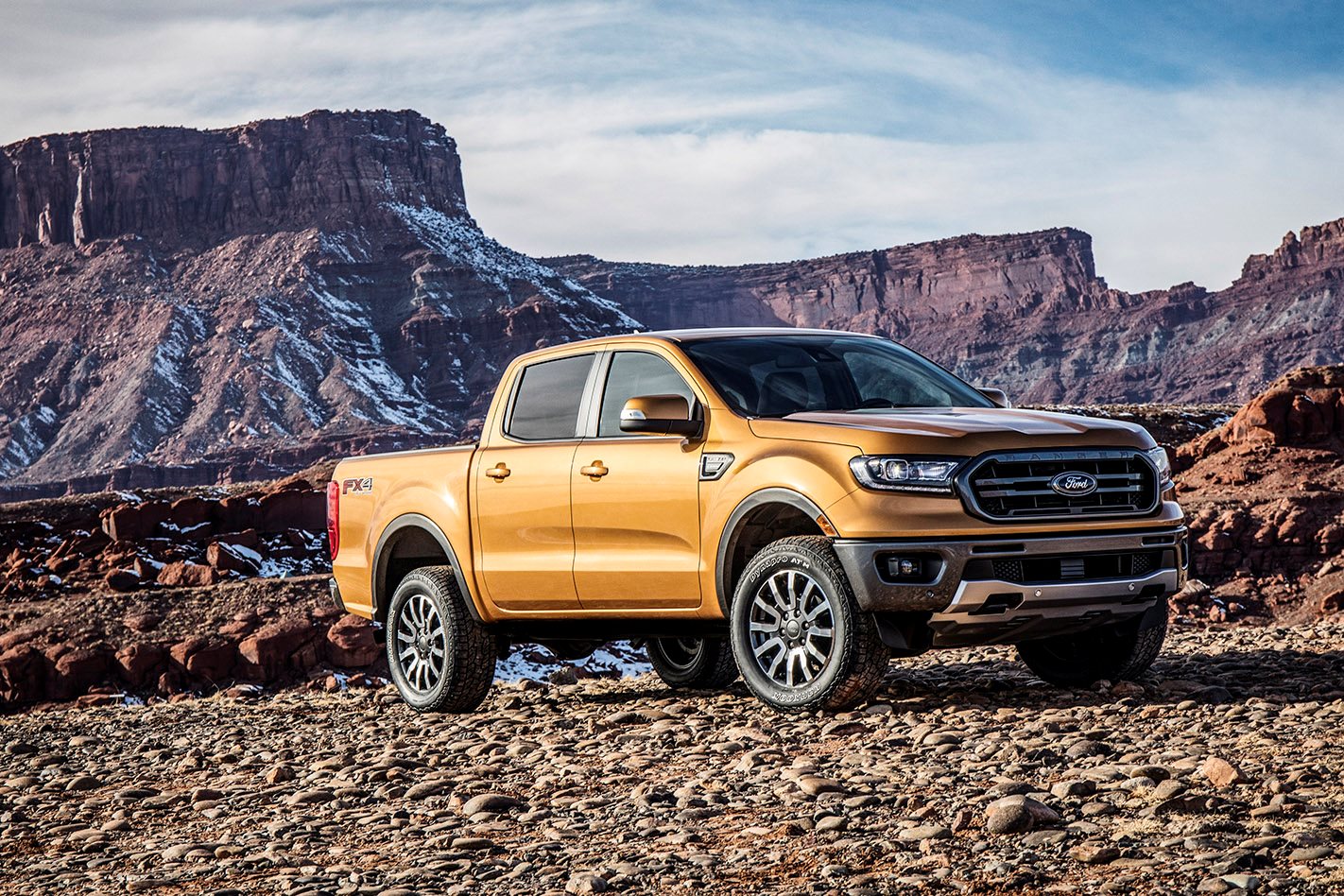
Ford has revealed its US version of the Aussie designed and developed 2019 Ford Ranger, which will share an engine with the Ford Mustang.
Before you get too excited, we should point out it won’t be the 5.0-litre V8 under the bonnet of the big ute, but the 2.3-litre Ecoboost turbo four in the cheaper Pony cars, and mated to a new 10-speed automatic transmission.
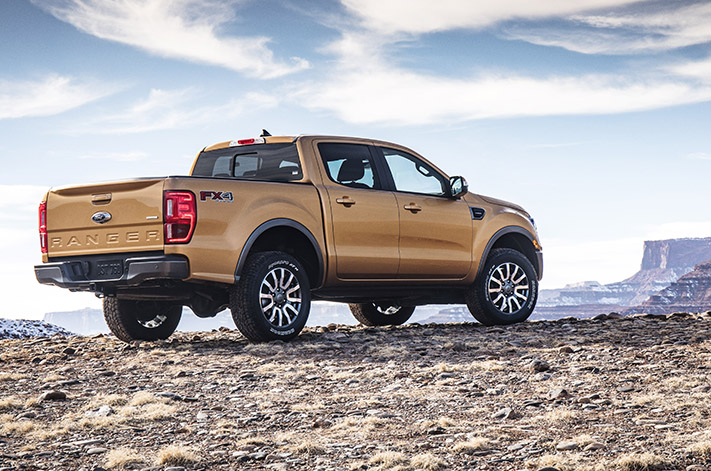
Ford was sketchy on performance figures but in Mustang guise the EcoBoost produces 233kW of power and a considerable 432Nm of torque, compared with the 147Nm/470Nm performance of the five-cylinder turbo diesel engine in the Aussie Rangers.
The decision to use a turbo petrol engine reflects American drivers’ aversion to diesel, and it is unlikely to make its way into the new Ranger when it arrives here.
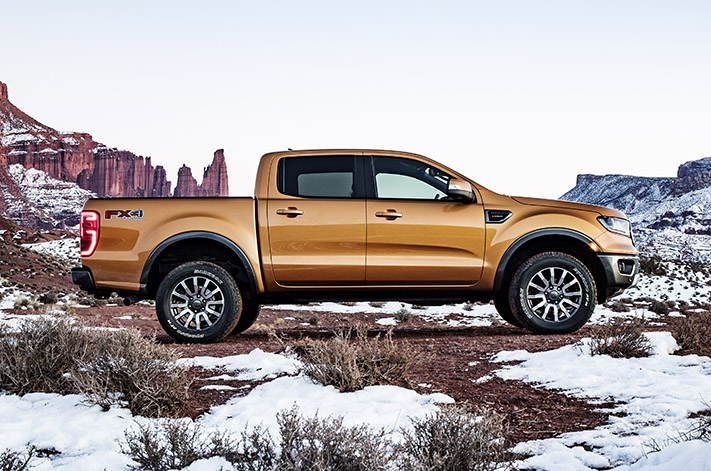
The US Ford Ranger does retain the double wishbone suspension system up the front, and load-friendly leaf springs down the rear.
Manual drive modes have been added to help adjust to different terrains and conditions including grass/gravel/snow, mud, ruts and sand. The range-topping FX4 will also have an Off Road pack that will add specialist shock absorbers, all-terrain tyres, a front bash plate, and frame-mounted skid plates.
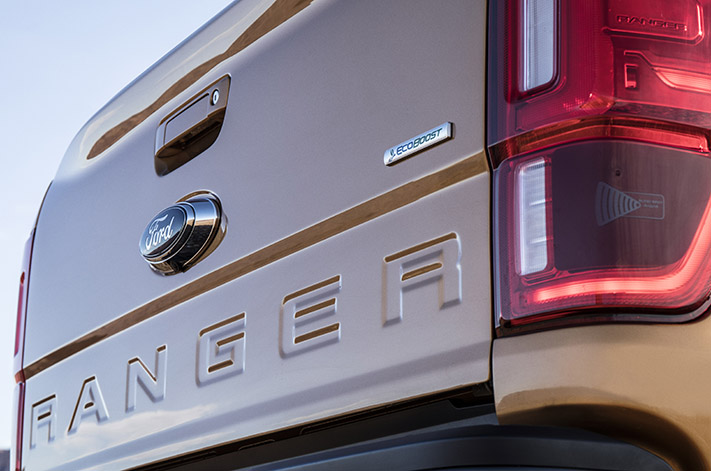
The Ranger also takes a big step forward in safety; automatic emergency braking will be made standard across all models, with the system extending to pedestrian protection on higher-cost models. It also gains the latest version of Ford’s Sync 3 multimedia interface, which is likely to include more consumer-friendly Waze navigation app for the first time.
Owners also will be able to set their Ranger up as a wireless internet hub for up to 10 connected devices.
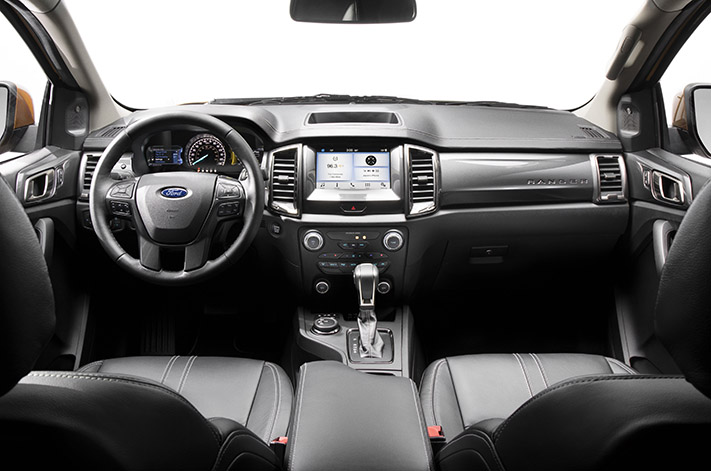
The US Ranger has more aggressive looks too, especially around the front. The stepped bonnet falls down to a smaller grille that now has the word “RANGER” embossed along the top of it. The tailgate gains similar treatment, where “RANGER” is pressed into its skin.
Unlike the Aussie Rangers that are built in Thailand, the US models will be built at Ford’s Michigan assembly plant. The company is keen to catch the midsize truck wave; sales in the segment are up 83 percent since 2014 “as a new generation of midsize truck buyers seek more manoeuvrable, fuel-efficient pick-ups”.


